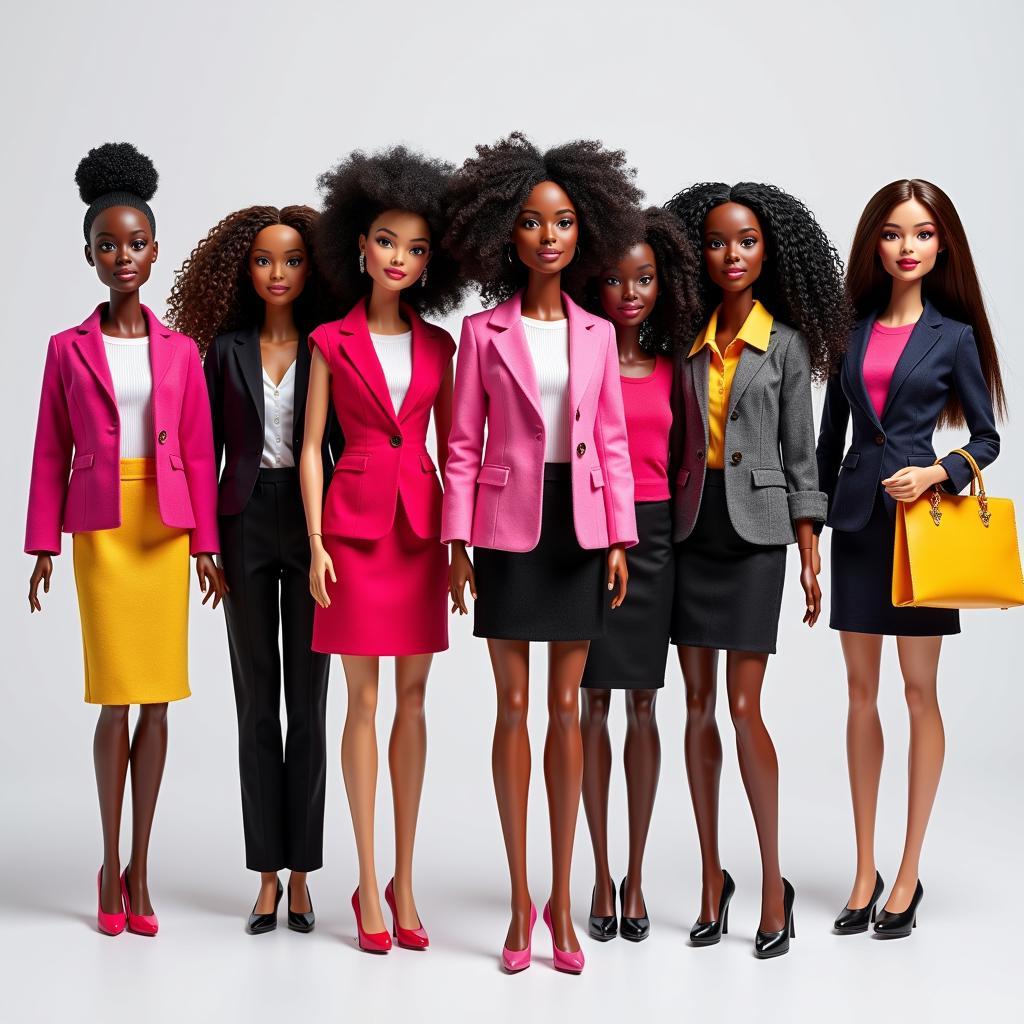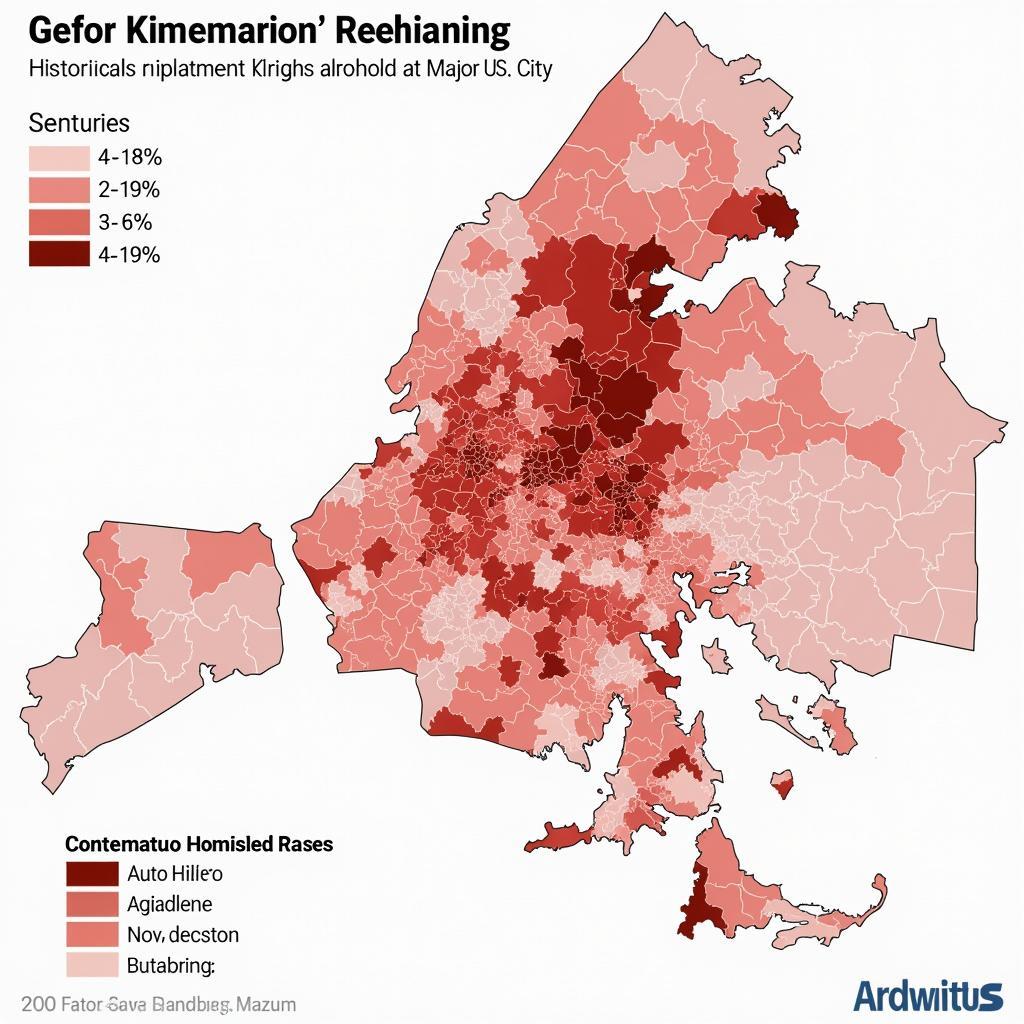Exploring the World of the African Barbie
The African Barbie doll represents more than just a toy; it’s a symbol of representation, cultural pride, and evolving beauty standards. From her earliest iterations to the diverse range available today, the African Barbie has made a significant impact on how young girls, particularly those of African descent, see themselves reflected in popular culture. Let’s delve into the fascinating journey of the African Barbie and her influence on generations.
The Evolution of the African Barbie
The first African American Barbie, Christie, was introduced in 1968, marking a crucial step towards inclusivity. However, it wasn’t until 1980 that the first official African American Barbie doll with the Barbie name was released. This was a significant milestone, acknowledging the need for diverse representation within the iconic doll line. Over the years, Mattel, the manufacturer of Barbie, has continued to expand the range of African Barbies, showcasing a variety of skin tones, hairstyles, and cultural attire. These dolls are not simply variations of the original Barbie; they represent the rich tapestry of African cultures, from traditional clothing and hairstyles to contemporary fashion. This commitment to diversity has allowed children from various African backgrounds to see themselves represented in a positive and empowering way.
The Cultural Significance of the African Barbie
The African Barbie holds profound cultural significance for many. She challenges Eurocentric beauty standards, celebrating the beauty and diversity of African features. By offering dolls with different skin tones, hair textures, and facial features, Mattel has helped to broaden the definition of beauty for young children. The introduction of dolls with traditional African attire also plays a vital role in educating children about different cultures and fostering a sense of pride in their heritage. For many young girls of African descent, seeing a doll that looks like them can have a powerful impact on their self-esteem and sense of belonging. This representation affirms their beauty and reinforces the message that they are valued and seen.
More than Just a Toy: African Barbie as a Symbol of Empowerment
The African Barbie is more than just a toy; it’s a tool for empowerment. She represents possibility and encourages young girls to dream big. Seeing an African Barbie in a doctor’s coat, a pilot’s uniform, or a scientist’s lab coat can inspire young girls to pursue careers in STEM fields or other traditionally male-dominated professions. African American doctor barbie is just one example of the many career-themed African Barbies available today. These dolls promote the idea that girls can achieve anything they set their minds to, regardless of their background. They challenge stereotypes and empower young girls to break down barriers.
What is the Name of the First African American Barbie?
The first African American Barbie doll was named Christie, introduced in 1968. For those interested in finding older dolls, checking out African American Oreo Barbie for sale might be a good starting point.
Where Can I Find More Information on Specific African American Barbie Dolls?
Resources like African American My Size Barbie and 2011 Holiday Barbie African American provide further insights into specific doll editions. If you’re interested in the names of African American Barbie dolls, you might find African American Barbie Name helpful.
 African Barbie Career Empowerment
African Barbie Career Empowerment
In conclusion, the African Barbie has had a significant impact on representation, cultural pride, and empowerment. From her early beginnings to the diverse range available today, she continues to inspire young girls and challenge beauty standards. The African Barbie is a testament to the power of representation and its role in shaping the self-esteem and aspirations of future generations.
FAQ:
- When was the first African American Barbie introduced? The first African American doll in the Barbie line, named Christie, was introduced in 1968.
- Are there African Barbies representing different cultures? Yes, Mattel has released African Barbies showcasing various African cultures through clothing, hairstyles, and features.
- Why is the African Barbie important? The African Barbie is important for promoting diversity, inclusivity, and positive representation for children of African descent.
- How does the African Barbie empower young girls? By showcasing diverse career options and challenging traditional beauty standards, the African Barbie encourages girls to pursue their dreams and embrace their individuality.
- Where can I find more information about African Barbie dolls? Online resources and collector communities provide extensive information and discussions about various African Barbie dolls.
- How does the African Barbie contribute to cultural understanding? The doll’s diverse representation helps children learn about different African cultures and appreciate their richness.
- What is the impact of the African Barbie on self-esteem? Seeing a doll that resembles them can positively impact the self-esteem of children from diverse backgrounds.
Commonly Asked Questions
Scenario 1: A parent wants to know if there are African Barbie dolls that represent their specific ethnic background.
Answer: Mattel has been expanding its range to include dolls representing various ethnicities and cultures within Africa. Check their website or contact customer service for specific inquiries.
Scenario 2: A child wants a doll that looks like them but is concerned about the limited availability of dolls with natural hairstyles.
Answer: Increasingly, doll manufacturers are producing dolls with more natural and diverse hairstyles, reflecting the beauty of various hair textures.
Further Questions and Related Articles:
- Are there African Barbie doll collector communities?
- What are some of the rarest African Barbie dolls?
- How has the design of the African Barbie changed over time?
Need assistance? Contact us:
Phone: +255768904061
Email: kaka.mag@gmail.com
Address: Mbarali DC Mawindi, Kangaga, Tanzania.
We have a 24/7 customer service team.

